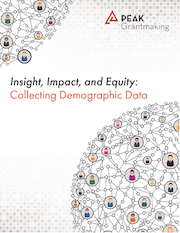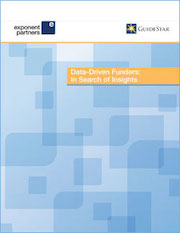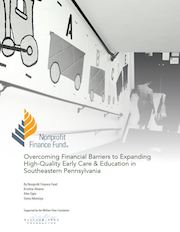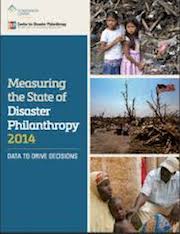Site Search
- resource provided by the Forum Network Knowledgebase.
Search Tip: Search with " " to find exact matches.
I Am Trenton Community Foundation is proud to announce awarding $135,000 total through the recent “Making Trenton Even Better” grant program to community champions transforming vacant lots, encouraging art and artists, teaching new skills and providing compassionate support with respect and dignity.
“These community groups will make a real impact across our city and we are excited to support their work,” said IAT Co-President Marelyn Rivera. “Our community faces challenges together, and working together we make Trenton even better.”
Grant Committee Chair Regina Podhorin-Zilinski noted that more than 100 applications were received – and many worthwhile projects were not able to be funded. “This was our most generous grant round ever – with more funding and more applicants than ever before,” she said. “Our only regret is that many good ideas did not receive support – this time.”
The Provident Bank Foundation announced the recipients of its inaugural Empowerment Grant cycle.
PBF’s Board of Directors has approved 41 multi-year grants totaling $515,000 in funding annually to support the missions of nonprofit organizations in New Jersey, New York, and Pennsylvania. Empowerment Grants range from $5,000 to $20,000 per grant and will be automatically renewed at the same level in 2026.
Projects funded by these grants align with PBF’s priority areas of education, human services, and workforce development, and their corresponding areas of interest that include community colleges, vocational programs, special education services, housing assistance, food security, health-care access for uninsured and underinsured individuals, youth mental health, job training, employment supports, and reentry programs.
“This is the first year of our Empowerment Grant program, which emerged from The Provident Bank Foundation’s recent strategic revisioning process focused on advancing equity and inclusion,” says Samantha Plotino, vice president and executive director of The Provident Bank Foundation.
CNJG is pleased to re-convene the South Jersey Funders Consortium for a lunch meeting at the Green Olive in Bridgeton. Join your fellow South Jersey funders for lunch and a round-robin discussion on what your organization is funding and any new initiatives you are introducing.
Any funder located in or funding in the eight southern counties of New Jersey is welcome to attend (Burlington, Camden, Gloucester, Salem, Cumberland, Cape May, Atlantic, and Ocean). Although Camden city is located in South Jersey, and because we already have a Camden funders affinity group, the topics of discussion of the South Jersey Funders Consortium should focus on south Jersey, outside of the city of Camden.
Cost: $35 for CNJG Members; $75 for Non Member Grantmakers
This program is open to all funders.
Please note: As there is no sponsor for this lunch, we are charging a small registration fee to cover the costs of lunch. This way, at the restaurant, we will only need one check, and be considerate for our server(s).
We have a sponsor for the first meeting of 2026, and CNJG would welcome more sponsors for additional meetings of this group next year.
Please contact Craig if you are interested in underwriting the costs of the lunch.
The Blacks in Philanthropy Conference, Bridging The Gap: Staying the Course, Rest over Resilience, hosted by the Smith Family Foundation NJ, brings together nonprofit leaders, funders, and changemakers to expand access and drive lasting impact in the philanthropic sector.
Why It Matters
Black communities have long led powerful giving traditions, yet face ongoing barriers to funding and leadership. This conference uplifts Black-led initiatives and redefines what inclusive, impactful philanthropy looks like today.
What to Expect at the Blacks in Philanthropy Conference
◆ Inspiring Keynotes – Hear from influential Black leaders driving change in philanthropy and social impact.
◆ Engaging Panel Discussions – Explore critical topics like wealth-building, access to funding, and community-led solutions.
◆ Workshops & Networking – Gain practical tools, connect with funders, and build partnerships to expand your organization’s reach.
◆ Celebrating Black Philanthropy – Highlighting the power of Black-led giving and its lasting impact on communities.
The New Jersey Cultural Trust has approved $1,001,964 in grants to 37 nonprofit history and humanities organizations across 14 counties, the largest total awarded in a single funding round in the program’s history.
The grants were approved during a November public virtual meeting of the Cultural Trust Board. With this round, the Trust has awarded more than $12.4 million for institutional stabilization and historic preservation projects since Fiscal Year 2004.
The Fiscal Year 2026 Institutional and Financial Stabilization Grants for History and Humanities Organizations were recommended by the New Jersey Historical Commission. Funding will support cash reserves, technology upgrades, capital equipment purchases, staff development, and strategic planning projects.
“As history and humanities organizations across New Jersey prepare to commemorate the nation’s 250th anniversary, these investments in institutional stability and capacity are especially vital,” said Lt. Gov. Tahesha Way, who oversees the Cultural Trust as secretary of state. “These grants increase the ability of our state’s cultural community to promote civic engagement, expand economic vitality, and engage diverse audiences in 2026 and beyond.”
Foundation funding in support of global human rights initiatives totaled $2.8 billion in 2016, up from $2.4 billion in 2015, according to the report from Candid and the Human Rights Funders Network. The report from the Advancing Human Rights research hub found that 785 funders in 43 countries awarded 23,016 grants to 13,242 organizations working to address the root causes of injustice and inequality and ensure the protection and enjoyment of internationally recognized human rights. Twenty-one percent of those grant dollars were awarded in the form of general support grants.

Grantmakers occupy a powerful space of privilege in the social change sector. As such, they have a unique opportunity—and responsibility—to work proactively toward equity and inclusivity. Increasingly, grantmaking institutions are challenging themselves to live their values through their grantmaking practices.
For philanthropy to advance equity in all communities, especially low-income communities and communities of color, it needs to be able to understand the demographics of the organizations being funded (and declined), the people being served, and the communities impacted. That data should be used to assess practices and drive decision making.
PEAK Grantmaking is working to better understand and build the capacity of grantmakers for collecting and utilizing demographic data as part of their grantmaking.

Traditionally, funders have asked grantees to report on compliance with grant requirements. But these reports don't show the difference a grantee is making with a funder's money.
This report looks at how leading grantmakers are tackling the transition from compliance reporting to performance management. Representatives from the Blue Sky Funders Forum, James Irvine Foundation, Robin Hood Foundation, David and Lucile Packard Foundation, and Tipping Point Community:
- identify barriers to data-driven funding;
- describe how their organizations are using technology to overcome these obstacles;
- and suggest how other funders can follow their lead.


Measuring the State of Disaster Philanthropy 2014: Data to Drive Decisions is the most comprehensive analysis to date on disaster-focused philanthropy. Published by Foundation Center and the Center for Disaster Philanthropy, the report provides a snapshot of funding for disasters by the largest U.S. foundations. This analysis focuses on 2012 data to establish a baseline and is the beginning of a longer- term effort to collect and aggregate data—from multiple streams—in order to track disaster giving globally. As these data collection efforts move forward, subsequent reports will feature more current and comprehensive trends on disaster-related giving.
The effects of COVID-19 continue to be felt all around New Jersey. In order to dig deeper into the impact of the pandemic on certain communities and stay connected during this difficult time, CNJG worked with our affinity group chairs and other members to develop programming that supplemented our COVID-19 Funders Briefing Series and Newark COVID-19 Series. These virtual affinity and interest group meetings were designed for colleagues to update each other on coronavirus response efforts, hear about the greatest needs in their funding area, and share what they have learned. CNJG members can access the recordings of these past meetings to hear what was said.
In the second quarter of 2021, the Westfield Foundation distributed $68,544.00 in grants to 10 different agencies: CancerCare Inc., CASA of Union County, Caring Contact, Family Promise, Greater Somerset County YMCA, More Than Bootstraps, Our House Foundation, Patriots’ Path Council – Boy Scouts, Presbyterian Church - Agape Community Kitchen and the Westfield Service League.
These funds will be used for such items as face masks for summer day campers, supplemental groceries for families in need, replacement of inoperable windows, training for family advocates re substance abuse and a healthy food initiative to address food insufficiency.
In their most recent round of funding, the Dodge Foundation made two major, multimillion-dollar grants to projects focused on power building and economic resilience. These grants, to the Racial Justice Alignment Group of Black, Indigenous, and Brown leaders and the Paterson “One Square Mile” initiative from Montclair State University, strengthen our work towards a just and equitable New Jersey. In addition to these grants, we provided support to 27 additional organizations, representing our purposeful efforts to support partners and institutions contributing to the vibrancy of our state.
The Montclair Foundation has awarded $62,000 in grant funding to nineteen diverse nonprofits dedicated to making a positive difference in the Montclair community and its environs.
“There is no greater honor than partnering with these exemplary nonprofits as they continue to nurture growth in our community,” said Peggy Deehan, Trustee and Grants Committee Chair. “This Spring, we once again had the most applications that we have ever received; this made the grant review process particularly difficult, and we supported as many organizations as we could.”
The Jewish Women’s Foundation of New Jersey (JWF-NJ), recently awarded $125,000 in grants to five local organizations that will put the money to work benefitting women and girls across the region.
“Each of these grants for 2024-25 represents our dedication to the Jewish value of ‘Tikkun Olam’ (repairing our world) and to fostering environments where all women can thrive,” Greenwood said.
The foundation said the round of grant funding is part of an ongoing effort to make a difference in the lives of women and girls by “addressing their unique challenges through philanthropy.”
Join us for this Health & Aging Affinity Group meeting, a unique opportunity for New Jersey-based funders to connect and share insights on initiatives and strategies related to health and aging. This engaging event will provide a platform for networking, knowledge exchange, and fostering potential partnerships among organizations dedicated to improving the well-being and quality of life for families in our communities. Let's come together to explore innovative solutions, share best practices, and build a stronger, more impactful funding network in the realm of health and aging.
Cost: Free for CNJG Members; $50 for Non Member Grantmakers
The Westfield Foundation is proud to announce the allocation of $52,000 in Q3 grants, raising its total year-to-date funding to $278,000. This quarter’s grants reflect the Foundation’s ongoing dedication to improving community well-being, focusing on inclusivity, accessibility, mental health support and elder care.
“Our goal is to support all segments of our Community," said Katie Curran Darcy, Executive Director of the Westfield Foundation. "These investments in critical areas, provide children with inclusive play spaces, offer essential care for our seniors, and mental health support for our youth. We believe these projects will have a lasting impact.”
